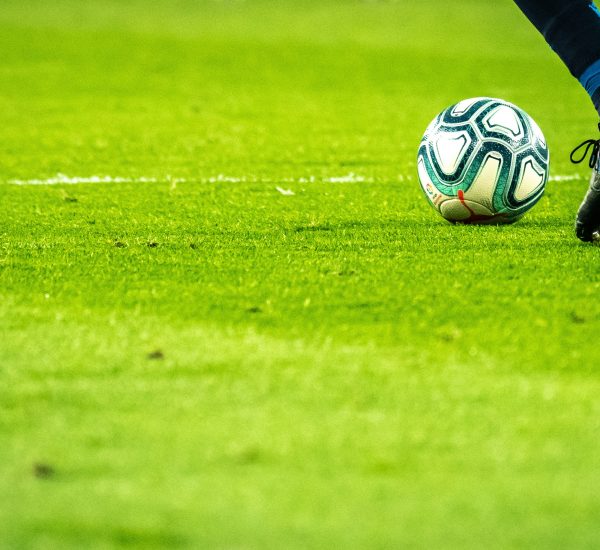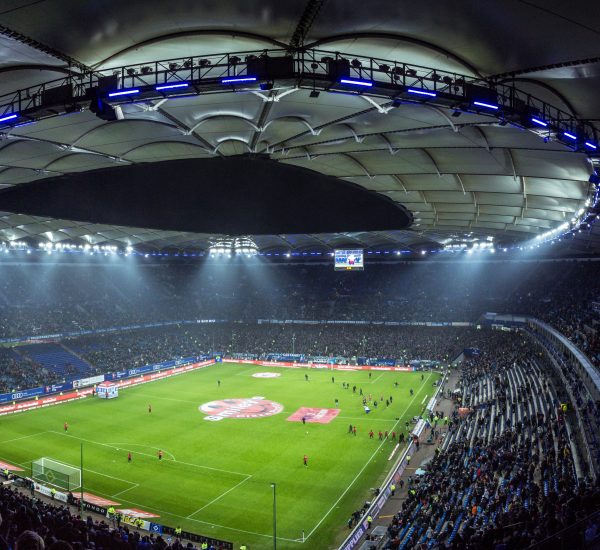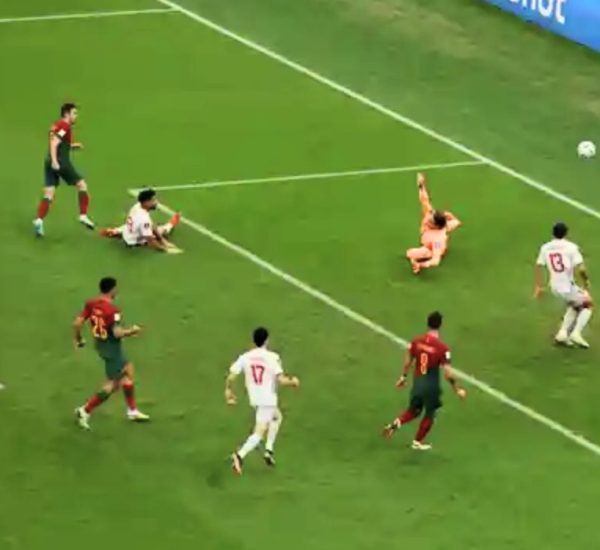PSV Eindhoven, or simply PSV, is a Dutch club that plays in the Eredivisie League. As one of the best clubs in the Netherlands, PSV has also shined in European competitions.
PSV Eindhoven is located in Eindhoven, Netherlands. They play their home game at the Philips Stadion, a stadium that can accommodate up to 35,000 fans. PSV have won 24 League titles, 9 KNVB Cups, one European Cup/Champions League, and one UEFA Cup. PSV Eindhoven’s glory years came in the 1987-88 season when they achieved a treble. They are a regular contender for the Dutch title. In the overall standings of the Eredivisie in terms of points, they are second behind Ajax.
The club has a reputation for developing talents and has produced some of the world’s best players. One of the most exciting parts of PSV’s history is its foundation.
| Full Name | PSV Eindhoven |
|---|---|
| Founded | August 31, 1913 |
| Nickname | Boeren |
| Stadium | Philips Stadion |
| Capacity | 35,000 |
| General Manager | Toon Gerbrands |
| Manager | Roger Schmidt |
| League | Eredivisie |
The Foundation Of PSV Eindhoven
PSV stands for Philips Sport Vereniging (Phillips Sports Union). Eindhoven is home to the electronics company Philips, which created PSV for their employees to play together for a club in 1913. However, the club’s foundations began in 1910, where a group of Philips employees created a team called Philips Elftal. The club met its demise within a year due to financial difficulties of the company and worker strikes.
Three years later, the Philips company introduced Philips Sport Vereniging, and the clubs merged. To play for PSV, you had to be a Philips employee. Such was the case for 15 years until 1928, where anyone could join the club.
PSV And The Dutch League
PSV joined the Dutch league in 1915 and played their first match against Willem II Reserves. Scheduled on September 19, 1915, the game ended in a 3-2 defeat for PSV. The club gained promotion to the top tier of Dutch soccer in the 1920s. After enduring relegation in 1925, PSV achieved promotion straight back up to the top level the following year, where they have remained ever since.
The arrival of Sjef van Run and Jan van den Broek shaped the squad and turned PSV into title contenders. Besides, chairman Frans Otten was appointed. He invested massively into the Dutch team by building new accommodations. He also worked on the stadium expansion that helped the team achieve a more significant status. The results were immediate as PSV clinched their first league title in 1929. Five years later, they won their second league title during the 1934-35 campaign.
Introduction Of Professional Soccer In Netherlands
Professional soccer was introduced in the Netherlands during the year 1954. PSV became the first Dutch club to compete in the European Cup in 1955. They lost in the first round by Rapid Wien, showing that Dutch soccer was perhaps not up to the other European nations’ standard at that time.
PSV did not experience much success throughout the ’50s. However, history was made by a player instead. Striker Coen Dillen became a club legend when he scored 43 goals in a season, a record for the most goals in a season, which still stands today. Dillen was PSV’s top scorer for eight seasons in a row before leaving the club in 1961.
In the 1962-63 campaign, PSV claimed their 4th title after a 5-2 win against Ajax. The club was not able to build on this success. However, they did appear again in the European Cup and Cup Winners’ Cup, this time reaching the latter stages of both competitions. In the early ’70s, the Dutch league was dominated by Ajax and Feyenoord, with PSV failing to deliver and turn into a regular title challenger.
The 70’s Success
Kees Rijvers took over as manager of PSV in 1972, which was the beginning of a successful era with a talented squad built by the manager. Van der Kuijlen was a promising young striker for PSV who had so far failed to live up to his potential after a brilliant season as a 20-year-old; however, Rijvers got him back to his best form, scoring 28 goals in the 1973-74 campaign. PSV won the KNVB Cup this year for the second time in their history, defeating NAC 6-0 in the final.
PSV followed this success with a league title in 1975. They retained the title again in 1976, achieving a double as they were victorious in the KNVB Cup. The club reached the semi-finals of the European Cup. At this point, PSV was establishing itself as one of the ‘Big 3’ clubs in the Netherlands. They were also a threat in Europe.
After finishing runners-up in the 1976-77 campaign, PSV won the title again for the 3rd time in 4 years the following season. This time, they achieved the remarkable feat of going undefeated in the league for the whole campaign. PSV also appeared in the UEFA Cup that season and faced a strong Barcelona side in the semi-finals. PSV won 3-0 in the first leg. PSV were down 3-0 in the second leg, with Barcelona looking like they would achieve an incredible comeback.
However, Welshman Nick Deacy got the goal at the Nou Camp to put PSV in the final. After drawing 0-0 in the first leg of the final, PSV won comfortably 3-0 in the second leg to win the UEFA Cup and their first-ever European trophy.
The 80’s Glory Years
PSV Eindhoven struggled to build on their UEFA Cup success in the early ’80s; by 1985, fortunes began to turn around for the club. With the arrival of the talented Ruud Gullit, the club made him captain. PSV won their first title since 1978 during the 1985/86 season.
The 1986 title was the beginning of a period of sheer dominance in the dutch league for PSV. The following season, Guus Hiddink came in as boss to retain the title in 1987. Another Dutch legend, Ronald Koeman, was signed for the club, but Gullit left for AC Milan at the end of the season for a club-record sale of £7.7 million
The 1987-88 season was undoubtedly the best in PSV’s history, known as “The Golden Years”. The club won the league comfortably, scoring an incredible 117 goals in the process. The KNVB Cup was next, winning 3-2 after extra time against Roda JC.
PSV were also competing in the European Cup. The club reached the knockout stages, where they made a habit of winning on away goals. They overcame Bordeaux in the quarter-finals to advance to the semi-finals, where they played against Real Madrid. They managed to qualify for the finals by eliminating their opponent.
In the final, PSV faced Benfica. The game was a tightly contested one, ending 0-0 after extra time. Benfica missed their 6th penalty in the sudden death, meaning PSV completed the treble, winning the Dutch league, the KNVB Cup, and the European Cup.
Young Talents And Future Legends
PSV built on this success by winning the double the next season. They clinched another league title and the domestic cup. PSV became adept at discovering and signing future stars after their European Cup win. They nailed the signature of Romario. The Brazilian striker was top scorer three years in a row, helping PSV and new manager Bobby Robson win the title again in 1991 and 1992.
The next notable shrewd signing was another Brazilian striker by the name of Ronaldo. Regarded as the greatest number 9 of all time, the youngster burst onto the scene with 30 goals in his first season. After two years, Ronaldo left for Barcelona in 1996, but PSV still had built a fantastic squad, including Phillip Cocu, Jaap Stam, Boudewijn Zenden. This team won the title again in 1996-97 after a 5-year drought.
The next quality striker in PSV’s ranks was Ruud Van Nistelrooy. The Manchester United legend made his name at PSV, scoring 62 goals in 65 appearances, and helped them to the 1999-2000 title. After leaving for the Premier League, PSV replaced Van Nistelrooy with Mateja Kežman. The striker filled Ruud’s gap to allow PSV to retain the title.
In 2003, Guus Hiddink returned as the head coach and led a team that included Arjen Robben and Park Ji-sung to the league table’s top. Hiddink conducted the start of a 4-year title-winning run for PSV between 2004 and 2008. After winning back to back titles in 2004 and 2005, he got replaced by Ronald Koeman. The latter won the league in the 2006-07 campaign on goal difference. A further two managerial changes helped PSV to the 4th title in a row.
Recent Years of PSV Eindhoven
The early 2010s was difficult for PSV, as they saw liquidity issues and further sales of exciting first-team players. Ex-player Philip Cocu came in as manager to end the league’s domination by Ajax as he led PSV to the title in 2014-15.
Under Cocu, PSV won the title again in 2015-16 and 2017-18, their 20th and last title victory to date. Ajax has once again begun to dominate the Eredivisie. However, the constant flux between the two sides in history is likely to repeat itself. PSV will be expecting that the next title win is not far off.



